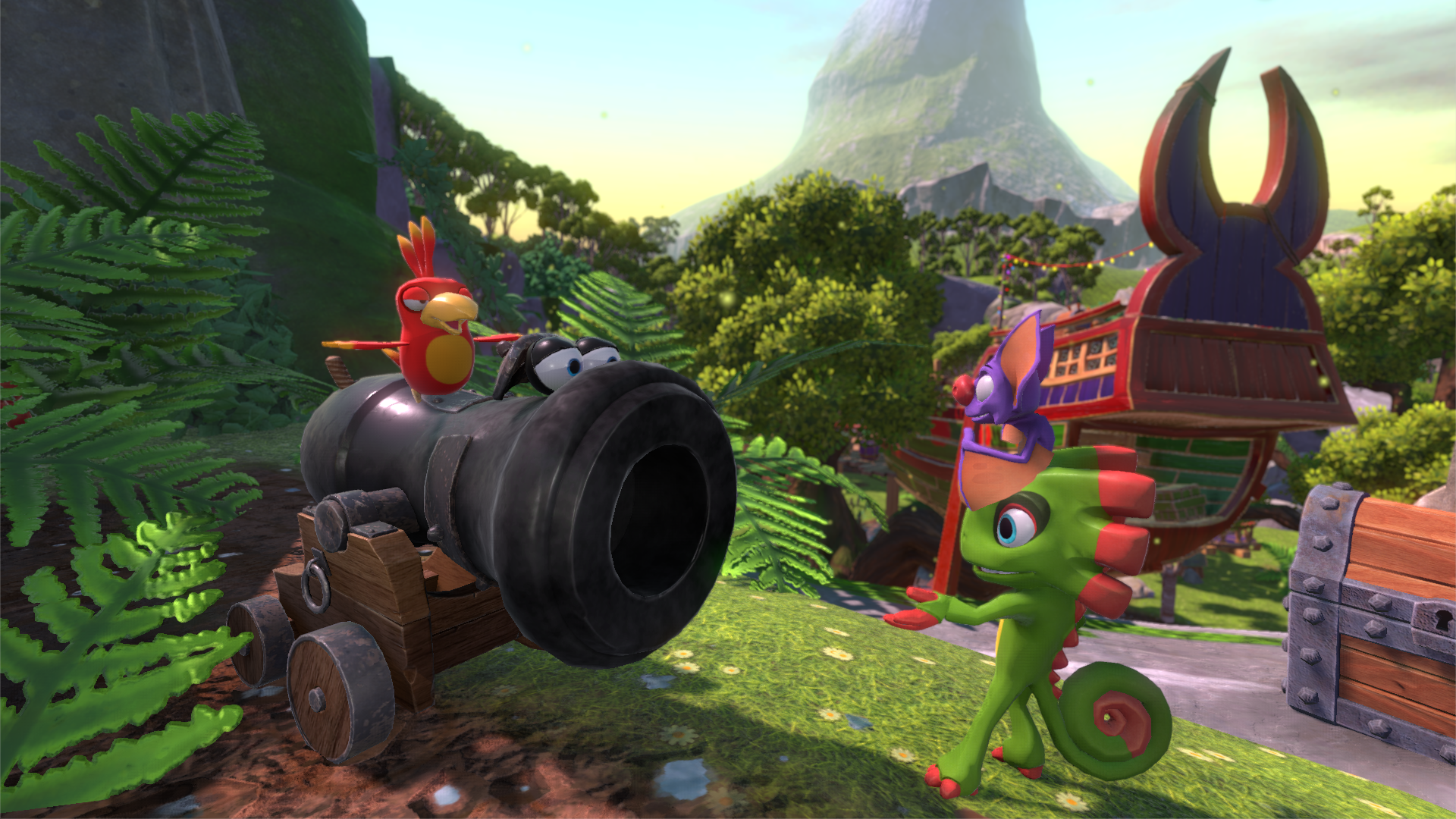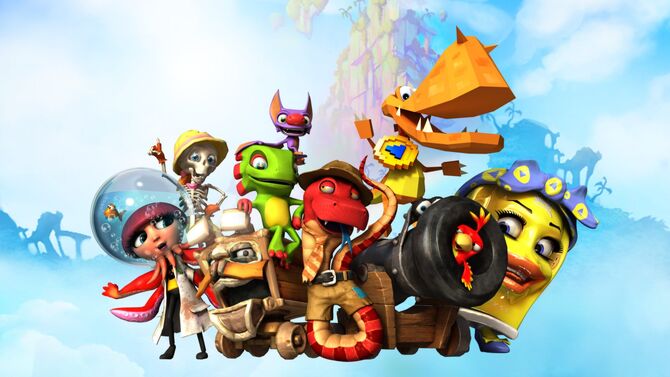I've been thinking about this, and I think part of the problem with collectathon platformers is that there's no real sense of player progression outside of the collectibles themselves. When I say progression, I mean specifically skill progression and mastery of the basic mechanics of the game and that's because there's nothing to really get better at in these games. You start them just running around, collecting shit and doing random tasks that are brought up and then forgotten about never to be seen about and you end them... just running around, collecting shit and doing more random tasks that are brought up once and then abandoned. That being the case, when you get to the end of the game, you're kind of just left with a lack of satisfaction because despite having made a lot of progress and accomplished what the game asked of you, you haven't actually really gotten better at anything or have any greater mastery of any of the controls or mechanics, because the game never really requires that, you know?
Like, in racing games, you get better at maintaining your speed and avoiding wiping out and shit. In FPS/third-person shooters, you get better at killing shit without getting killed yourself or even taking damage. In stealth games, you get better at avoiding being spotted even in increasingly more difficult situations. In non-colletathon 3D platformers, you get better at jumping from platform-to-platform in 3D environments without falling off or running into obstacles.
But in collectathon 3D platformers, what are you really getting better at exactly? What's that different at the end of the game, from the start? Because the focus isn't even on platforming and there barely is any (like, Banjo Kazooie has no real platforming of any particular note until Click Clock Woods, the last world in the game, while it introduces flight, a mechanic to entirely avoid it in Treasure Trove Cove, the second world), there just isn't much of a feeling that you've truly actually accomplished anything at the end since what core gameplay there is is pretty static (ignoring the constantly changing minigames which aren't meaningful because they're just there and gone, not giving players time to get attached or care about any particular one or have reason to get better at them) and the difficulty curve basically non-existent, which leaves the whole experience unsatisfying because "skill" is basically a non-factor. Either you get the basic gist or you don't. And that being the case and people naturally wanting a feeling of actually getting better at something, regardless of what that something is (whether it be third person shooter mechanics in the Ratchet and Clank games, focus on actual 3D platforming in the 3D Marios, or whatever), which the genre couldn't give them, is part of why it just died out. Maybe that's just me? But thinking about it, it's what comes to mind.
Like, the only thing to really get better at, is just doing the levels faster and faster and basically taking up speedrunning. But since these games themselves didn't particularly encourage that or give any incentive to play through the games multiple times, that wasn't enough and either they found different hooks or just kinda vanished. I dunno if I'm actually on to something or not with that, but thinking about it, it's what kinda makes sense to me.














